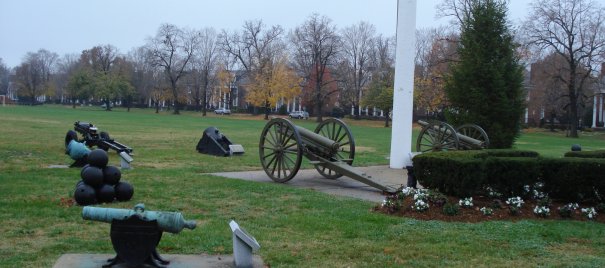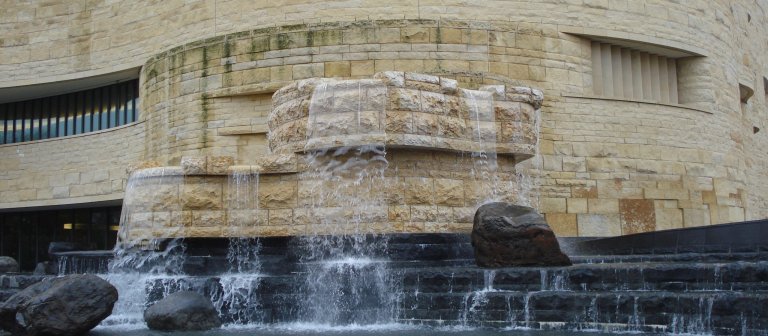Below are grounds at NDU.

If you want to effectively be action oriented, you have to spend most of your time trying to figure things out. You have to be reasonably certain that you are doing the right things and that you are doing the important things and not merely responding to the urgent ones. If you don’t think about things in advance, you will get stuck responding to events and/or be captured by the passions or fears of others. All this makes perfect sense, but it is harder to do than to talk about. It is hard to not get excited when things are moving fast and it is easy to get blamed for doing nothing or waiting even when those are the proper responses.
I expect life will get interesting soon when the new political appointees come to take over. IIP has been w/o political appointees for a couple of years, ever since Alex Feldman left. This is very uncommon. In times past, we had all sorts of political guys around and I am sure we will have them again in the new administration. The new people always have lots of ideas and they often believe that they are the first to have thought of them. This is my forth big transition. When all the sound and fury is finished & the dust has settled the trajectories are fairly predictable. Career people like me have to remember that the political leaders set policy and we have the duty to help those policies succeed for the good of the country. The hard part is to give advice in a credible way w/o being either arrogant or sycophantic. The best way to do prepare for this is to know the portfolio and have thought through the various scenarios. In other words, to be action oriented you have to have spent the time figuring things out.
The thing I worry about in the transition is security policy. (I am happy that I am not directly involved with too much of this, BTW, but I still think about it. Transitions are seams and enemies can exploit seams. The U.S. did a good job preventing new terror attacks after 9/11. We also managed to turn around the situation in Iraq and achieve tentative success there. I am afraid that there is a growing public perception that these outcomes were natural or resulted from luck. As the memory of dangerous and uncertain events fades, complacency grows. We were indeed lucky in that the bad guys did some really stupid things – they overreached – and we were lucky that in the last couple of years many things broke our way more often than not, but our success depended on a lot of things we did right. I am personally familiar with only a small part, but I know enough to be sure of that. We should be sure not to lose through apathy & unawareness what we have worked so hard to win with effort, bravery and blood.
Below – waterfall at American Indian Museum in Washington

It seems so long ago now. In the years since 9/11/2001 many people have been trying to understand the motivations of terrorists and working to make profiles of the sorts of people who become violent extremists. Not many people really have the mental profile of the violent extremist. It takes a prodigious amount of hate, intolerance and determination to make a person want to be a terrorist. Fortunately it also takes something else – opportunity, as well as a impetus. Beyond that, the link between attitude and behavior is tenuous.
Links – Links are the keys. There is a long chain between the conception of a terrorist desire and the successful completion of destruction & mass murder. A chain is as strong only as its weakest link and each of the links in the chain can be attacked. You attack the whole chain by identifying and attacking each of the links as well as the environments that help forge the chain. That is what I hope and believe our information activities are helping and will help to do. That is what we have to keep on working to do.
We have to be not like a chain, but like a cable, where each strand goes from start to finish, twined together seamlessly. I hope this transition will be smooth and clean.
